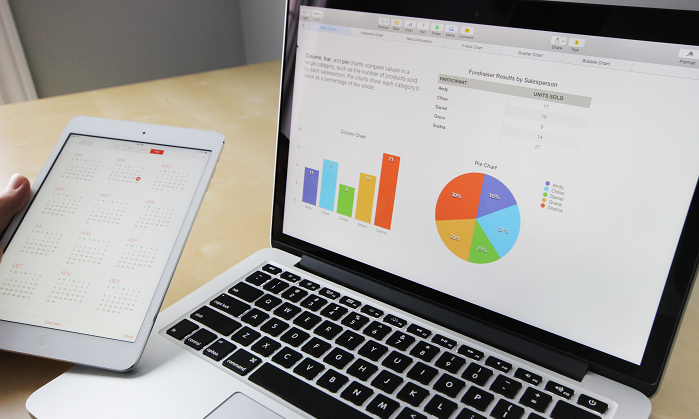Freelance Data Analysts, Scientists, and Business Analysts: Find and Hire the Best for Your Project

Table of content
1. What Does a Data Analyst Do?
2. What Does a Data Scientist Do?
3. What Does a Business Analyst Do?
4. Why Hire Freelance Data Specialists?
5. How to Find and Hire the Best Freelance Data Specialists
6. Additional Tips for Successful Hiring
7. Conclusion
Hiring the right data specialist can be challenging, but with the right guidance, it becomes much simpler. This comprehensive guide will help you understand how to find and hire the best Freelance Data Analysts, Data Scientists, and Business Analysts for your projects. Whether you’re looking to clean and analyze data, predict future trends, or strategize business operations, this guide has you covered.
Understanding the Key Roles
What Does a Data Analyst Do?
Data Analysts focus on cleaning, organizing, and preparing data for actionable insights. They convert raw data into useful information that businesses can leverage for decision-making.
Responsibilities of a Data Analyst:
- Cleaning and organizing datasets.
- Generating reports and dashboards.
- Identifying trends and patterns in data.
- Supporting business decision-making with visualized data insights.
When hiring a freelance Data Analyst, you’ll need someone skilled in tools like Excel, Tableau, Power BI, or Python. Look for candidates who have a portfolio showcasing relevant projects.
What Does a Data Scientist Do?
Data Scientists go a step beyond Data Analysts. They use advanced techniques like machine learning and statistical modeling to predict future outcomes based on historical data. They often bridge the roles of an engineer, statistician, and computer scientist.
Responsibilities of a Data Scientist:
- Building predictive models.
- Designing algorithms for automation.
- Extracting actionable insights from large datasets.
- Applying machine learning techniques to solve business problems.
Data Scientists can interpret complex datasets and deliver precise solutions for business challenges. When hiring, seek those with hands-on experience in cutting-edge tools like TensorFlow, PyTorch, and cloud platforms like AWS or Azure.
What Does a Business Analyst Do?
Business Analysts focus on the intersection of business and data. They communicate with stakeholders and managers to identify Key Performance Indicators (KPIs), formulate strategies, and provide recommendations for improving business processes.
Responsibilities of a Business Analyst:
- Identifying and analyzing KPIs.
- Liaising with stakeholders and management.
- Generating master reports and merging datasets.
- Proposing actionable strategies to optimize operations.
Successful Business Analysts possess exceptional communication skills, as they need to convey complex data insights to non-technical stakeholders effectively. Additionally, knowledge of tools like Jira, Confluence, and SQL is advantageous.
Why Hire Freelance Data Specialists?
Freelance data specialists offer flexibility and cost-effective solutions without compromising on quality. Businesses benefit from their specialized skills for short-term projects without the commitment of full-time employment. Additionally, freelancers often bring diverse industry experiences, making them highly adaptable to various project needs.
Key Advantages of Freelance Specialists:
- Cost Savings: Avoid overhead costs associated with full-time hires.
- Global Talent Pool: Access a wide range of experts from different regions.
- Project-Specific Expertise: Find professionals tailored to your unique requirements.
By leveraging freelance professionals, businesses can quickly scale operations, tackle pressing challenges, and access cutting-edge expertise.
How to Find and Hire the Best Freelance Data Specialists
Steps to Hire a Freelance Data Analyst
To ensure you’re hiring the right Data Analyst for your project, follow these steps:
- Evaluate Portfolios: Look for portfolios that showcase relevant experience and quality work. Focus on the tools and techniques they’ve used and whether their results align with your needs.
- Check Reviews and Testimonials: Past clients’ feedback is an excellent indicator of their communication, reliability, and expertise.
- Define Your Requirements: Outline your project’s scope, deliverables, and desired outcomes. A clear project brief should include:
- Project goals.
- Deliverables (e.g., dashboards, reports, datasets).
- Required tools (e.g., Tableau, Python).
- Budget and timeline.
- Use Pangaea X: Post your project brief on Pangaea X to access a global pool of freelance Data Analysts. Shortlist candidates based on their profiles, portfolios, and client reviews.
Steps to Hire a Freelance Data Scientist
A Data Scientist’s role is specialized, requiring expertise in machine learning, data engineering, and advanced analytics. To hire the right candidate:
- Clarify Your Project Needs: Decide whether your project requires predictive modeling, machine learning, or statistical analysis. Be clear about the programming languages (e.g., Python, R) or tools (e.g., TensorFlow) required.
- Review Technical Expertise: Examine their portfolio for advanced projects like predictive models or algorithm design. Assess their familiarity with industry-standard tools.
- Check Industry Experience: Experienced Data Scientists with domain-specific knowledge (e.g., healthcare, finance, or retail) can add significant value to your project.
- Post on Pangaea X: Use Pangaea X to list your requirements. The platform’s advanced search and filtering capabilities make it easier to identify qualified Freelance Data Scientists.
Steps to Hire a Freelance Business Analyst
Business Analysts play a crucial role in aligning business goals with data-driven strategies. Follow these steps to find the best candidate:
- Assess Industry Knowledge: Ensure they understand your industry’s nuances. For example, a Business Analyst in the retail sector should know about customer behavior analytics and supply chain optimization.
- Verify Communication Skills: Since Business Analysts interact with stakeholders and managers, their communication skills must be impeccable. Check for client testimonials that highlight their ability to convey complex ideas clearly.
- Define the Scope of Work: Provide a detailed brief, including:
- Project objectives.
- Stakeholder requirements.
- Specific software or tools (e.g., Jira, Confluence).
- Budget and timeline.
- Shortlist Candidates on Pangaea X: After posting your project brief, use the platform’s tools to filter candidates based on experience, skill sets, and reviews.
Additional Tips for Successful Hiring
Crafting a Perfect Project Brief
A well-crafted project brief ensures clarity and attracts the right talent. Include:
- Project Overview: A summary of what you want to achieve.
- Expected Deliverables: Dashboards, reports, or datasets.
- Skill Requirements: Tools and programming languages needed.
- Timeline and Budget: Clearly define your expectations to avoid misunderstandings.
Conducting Effective Interviews
During the interview process:
- Ask candidates to explain their portfolio projects.
- Test their technical skills through case studies or short tasks.
- Assess their problem-solving approach and ability to communicate.
Leveraging Pangaea X for Your Hiring Needs
Pangaea X is a powerful platform designed to connect businesses with top freelance Data Analysts, Data Scientists, and Business Analysts. With its intuitive and user-friendly interface, it streamlines the hiring process and provides access to a global network of talented professionals.
Key features of Pangaea X include:
- Post Detailed Project Briefs: Easily create and share comprehensive project descriptions to attract candidates with the right expertise.
- Browse Profiles and Portfolios: Explore professional profiles and review portfolios to assess the skills and experience of potential freelancers.
- Shortlist Candidates: Filter and shortlist candidates based on client reviews, ratings, and relevant project experience.
Pangaea X ensures a smooth hiring experience, helping you find the perfect expert to meet your project needs efficiently and effectively.
Find freelancers now at Pangaea X and get your projects done with ease!
Conclusion
Hiring freelance data experts is a cost-effective and efficient way to access top-tier talent from around the world. Whether you need a Data Analyst to clean and visualize data, a Data Scientist to predict trends, or a Business Analyst to strategize business goals, Pangaea X offers a streamlined hiring process.
Following the steps outlined in this guide and leveraging the platform’s features, you can find the perfect candidate to bring your project to life. Start your hiring journey today with Pangaea X, where quality meets expertise.
Get your data results fast and accelerate your business performance with the insights you need today.



